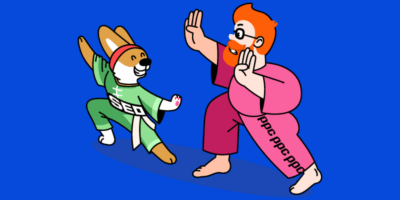In this post, you’ll learn how to decide which is better for your business.
But first, let’s cover the basics.
SEO is the process of optimizing your pages to rank in a search engine’s organic results.
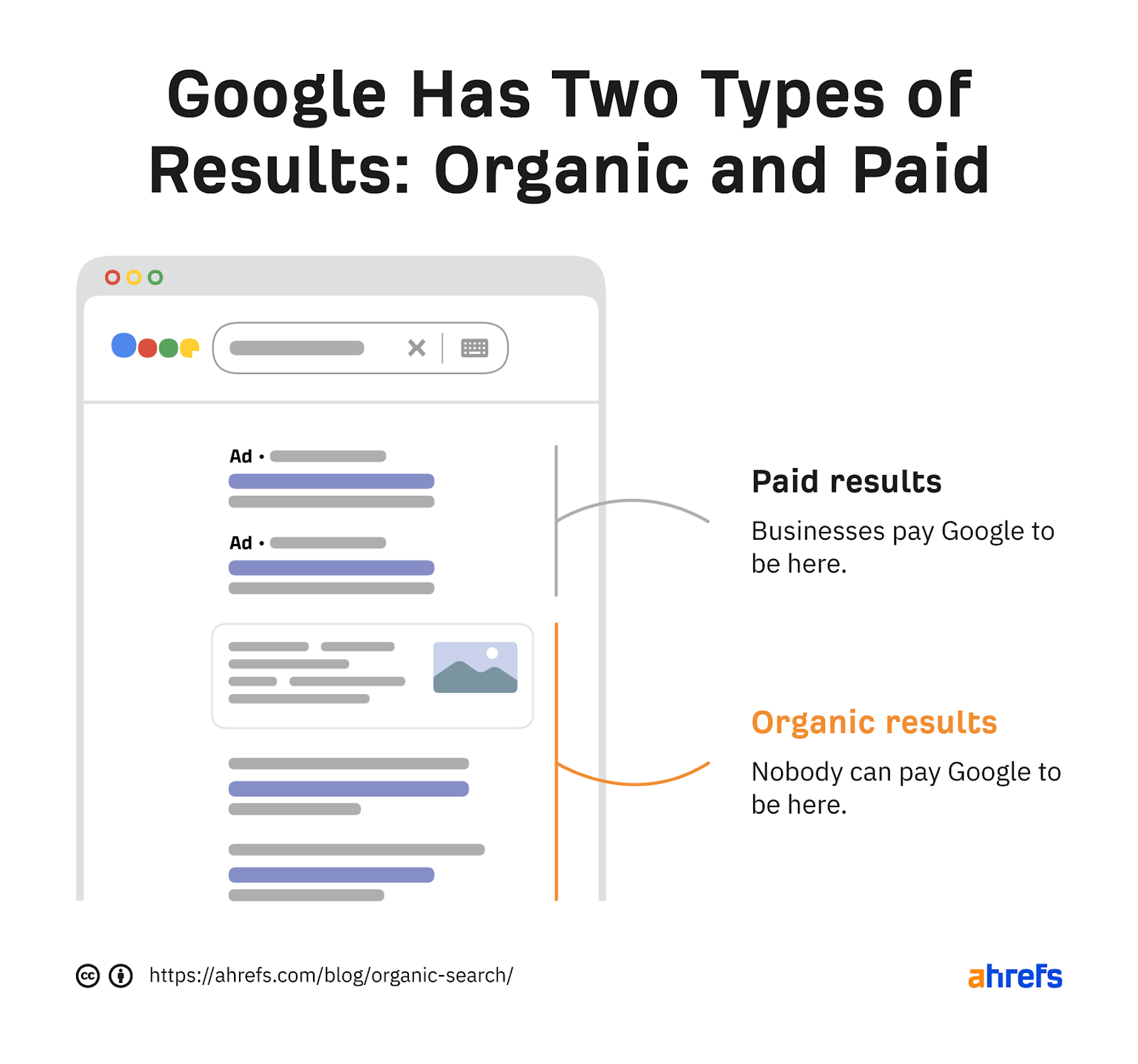
It typically involves four areas:
- Keyword research – Find what people are searching for
- On-page SEO – Create content that searchers are looking for
- Off-page SEO – Build trust and authority from other websites
- Technical SEO – Ensure search engines can find, crawl, and index your content
Recommended reading: SEO: The Complete Guide for Beginners
1. Keyword research
Keyword research is the process of understanding the words and phrases (keywords) your target customers use when searching on search engines. Finding these keywords usually involves using a keyword research tool like Ahrefs’ Keywords Explorer.
For example, here’s how we can find keywords for an online store that sells coffee products:
- Brainstorm words and phrases potential customers may enter on Google
- Enter them into Ahrefs’ Keywords Explorer
- Go to the Matching terms report
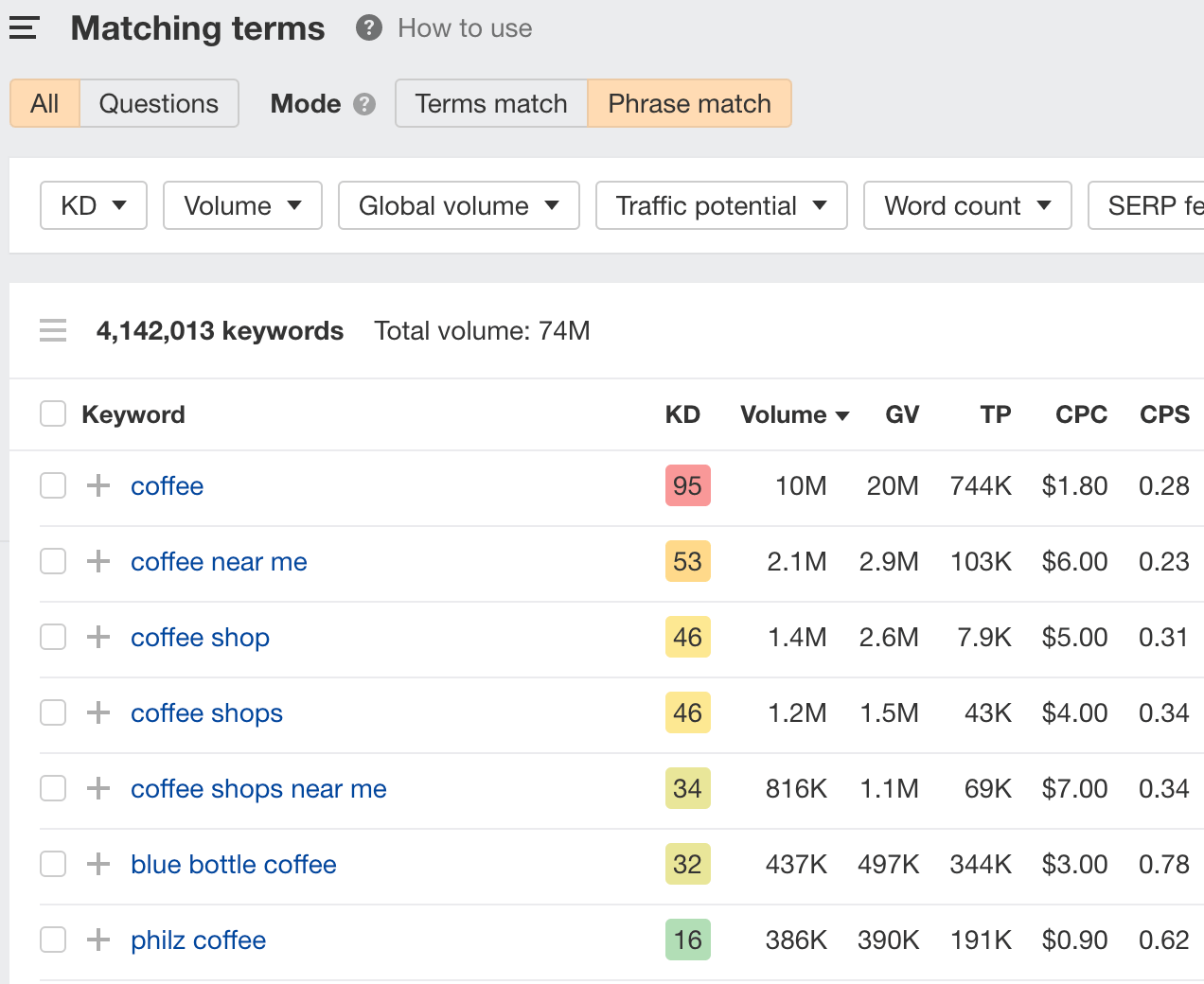
Recommended reading: Keyword Research: The Beginner’s Guide by Ahrefs
2. On-page SEO
On-page SEO is about creating the kind of content searchers want to see. Doing this involves figuring out why searchers are making the query. This is known as search intent.
For example, people searching for “how to make kefir” want to learn. You can see from the organic results that they want a step-by-step tutorial on how to make the fermented drink:
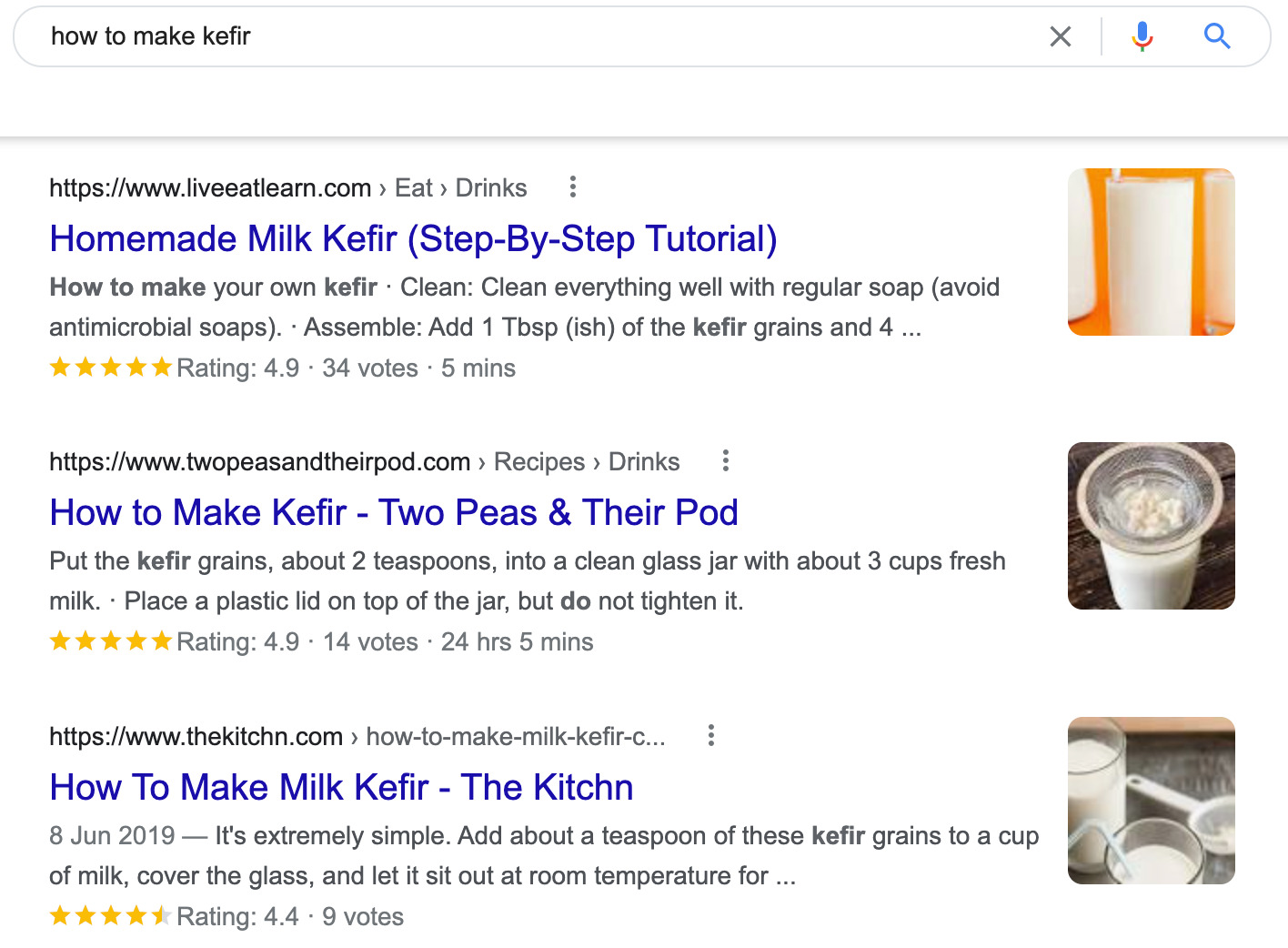
On the other hand, people searching for “basketball shoes” want to buy. The organic results show us pages of different basketball shoes on e-commerce websites:
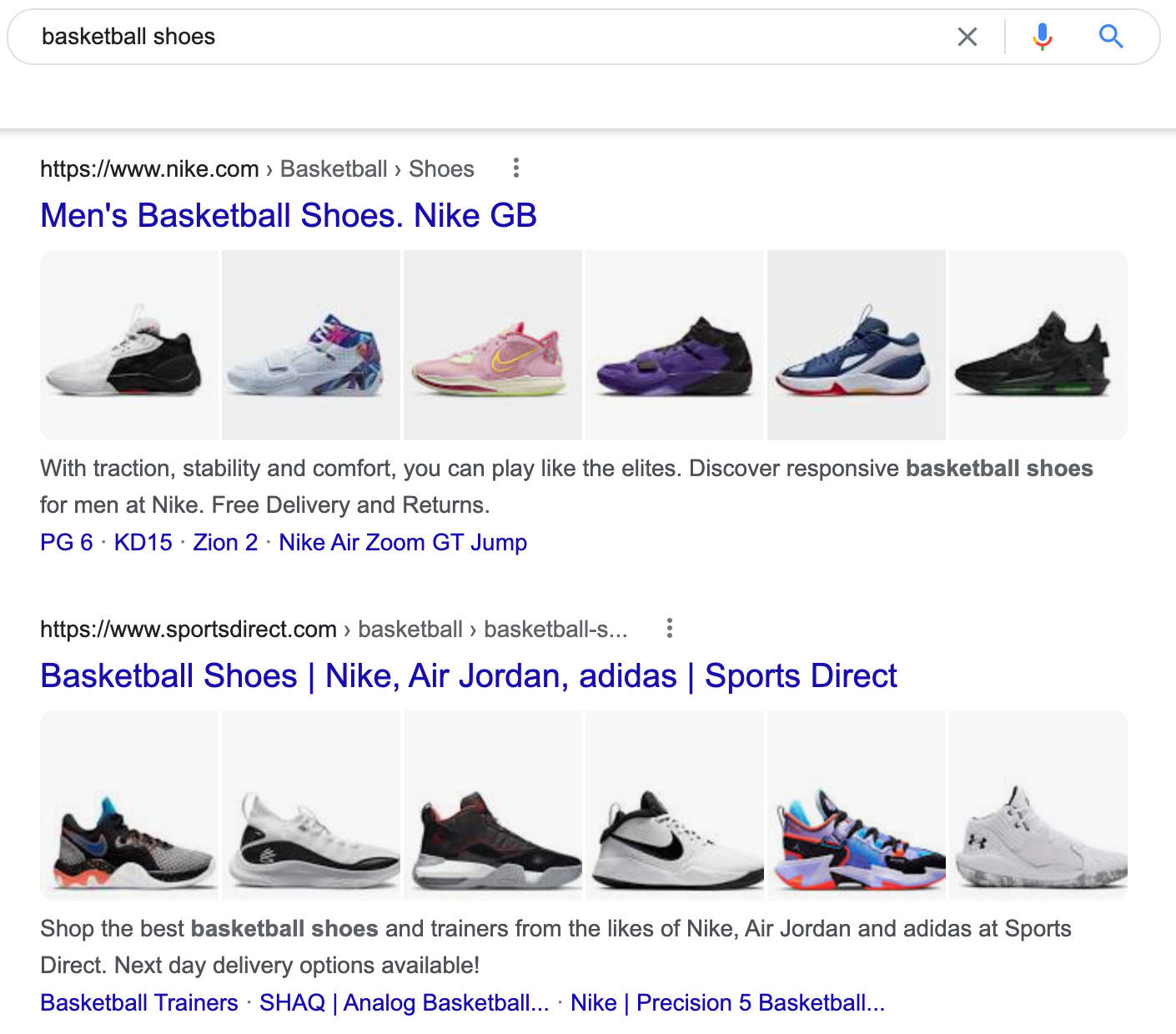
Knowing search intent is important because you’ll want to align your content with it. But on-page SEO doesn’t just end with search intent. It also involves other important factors like:
- Strategically placing keywords, such as in the title.
- Creating a compelling title.
- Using short and descriptive URLs.
- Optimizing images.
And more.
Recommended reading: On-Page SEO: The Beginner’s Guide
3. Off-page SEO
Off-page SEO is where you do things outside your site to show Google that your pages deserve to rank.
One of those things is building high-quality backlinks. This is important because backlinks are one of Google’s top three ranking factors. They act like votes from other websites.
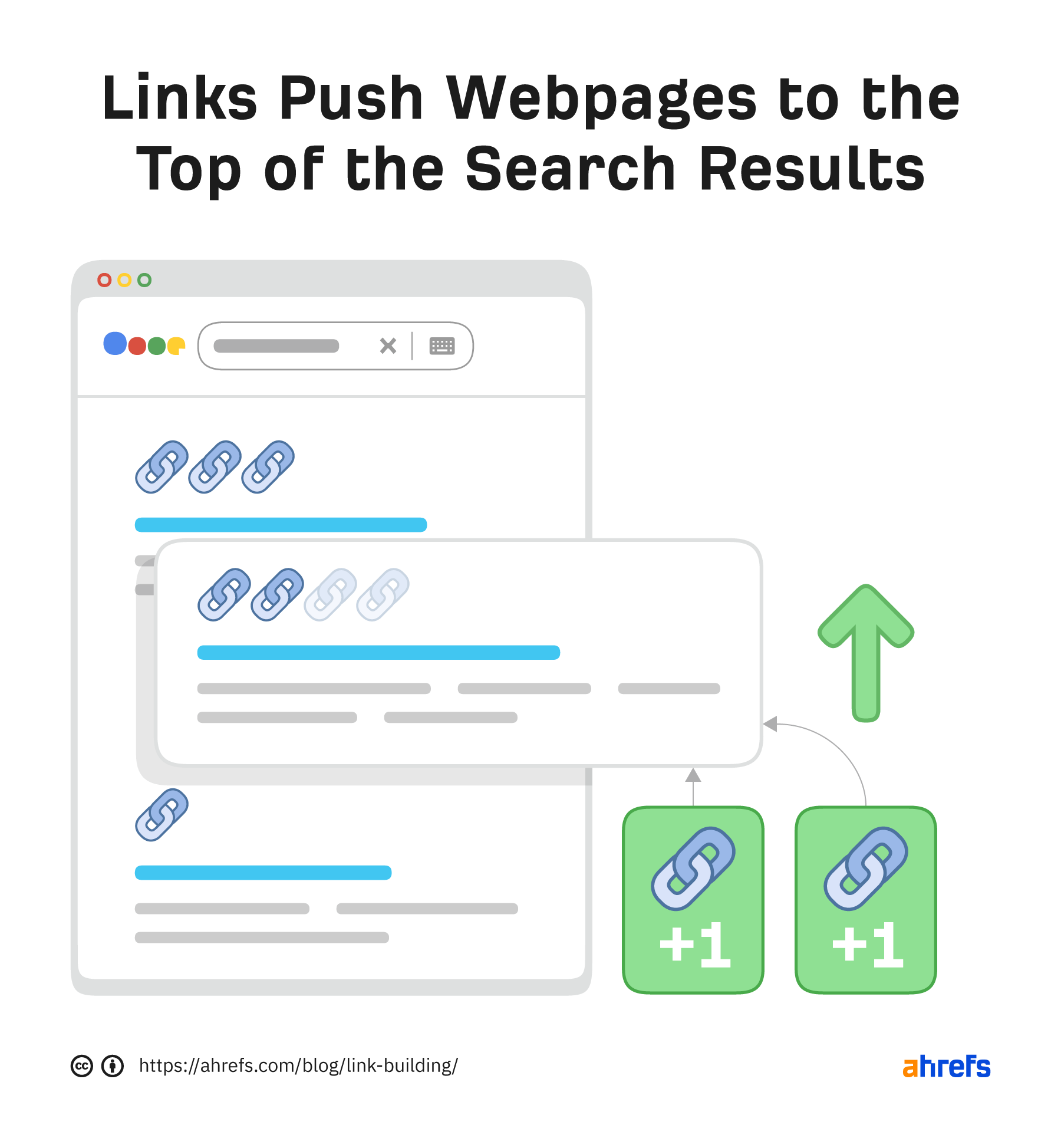
You can see who links to you using Ahrefs’ Site Explorer (free via Ahrefs Webmaster Tools) by entering your domain and going to the Backlinks report:
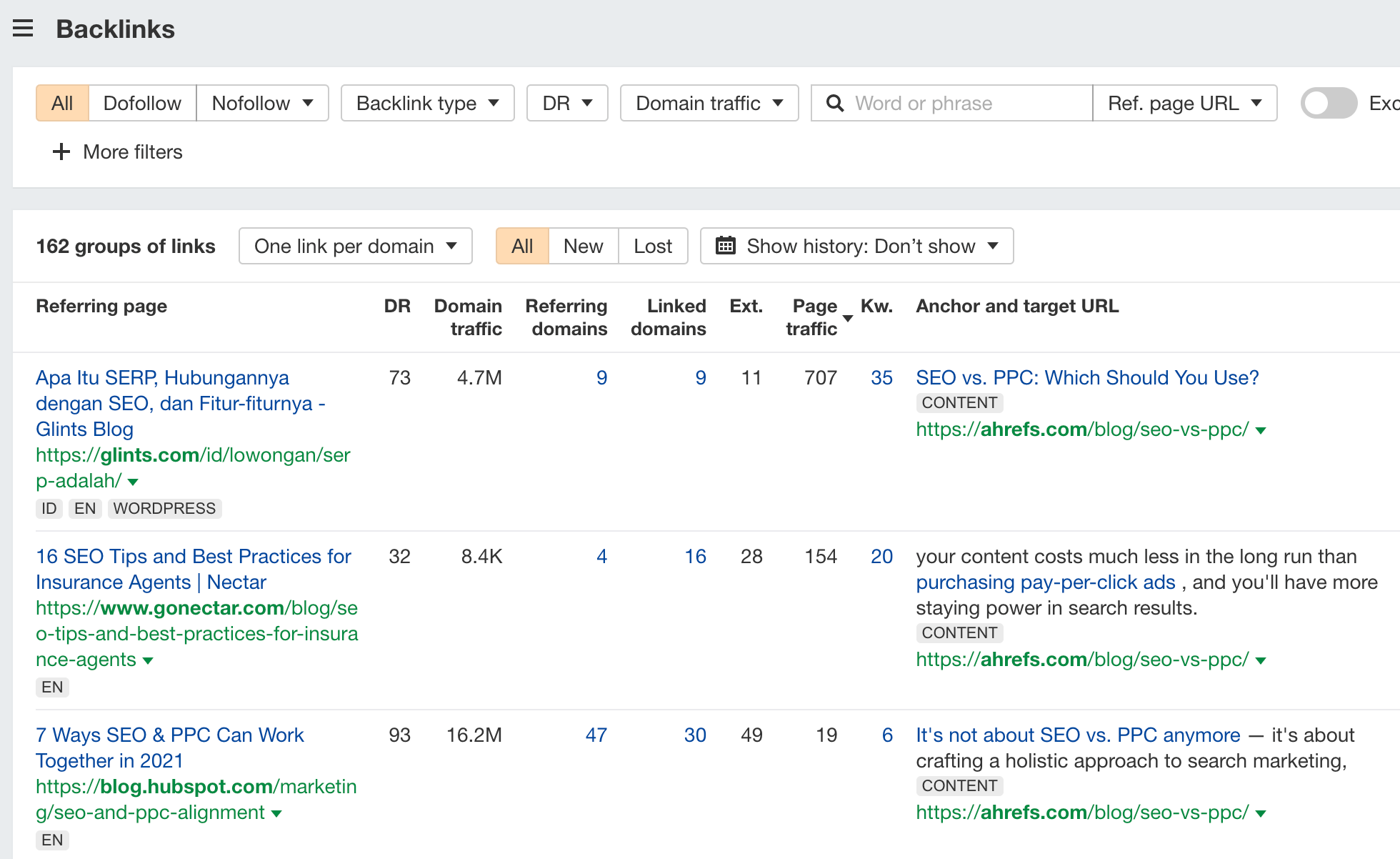
Besides links, other important off-page factors (especially for local SEO) include reviews, citations, and more.
Recommended reading: Off-Page SEO: What It Is and Why It’s Important
4. Technical SEO
Technical SEO is all about making sure search engines can find, crawl, and index your content. This is important because you can’t rank if search engines don’t know you exist.
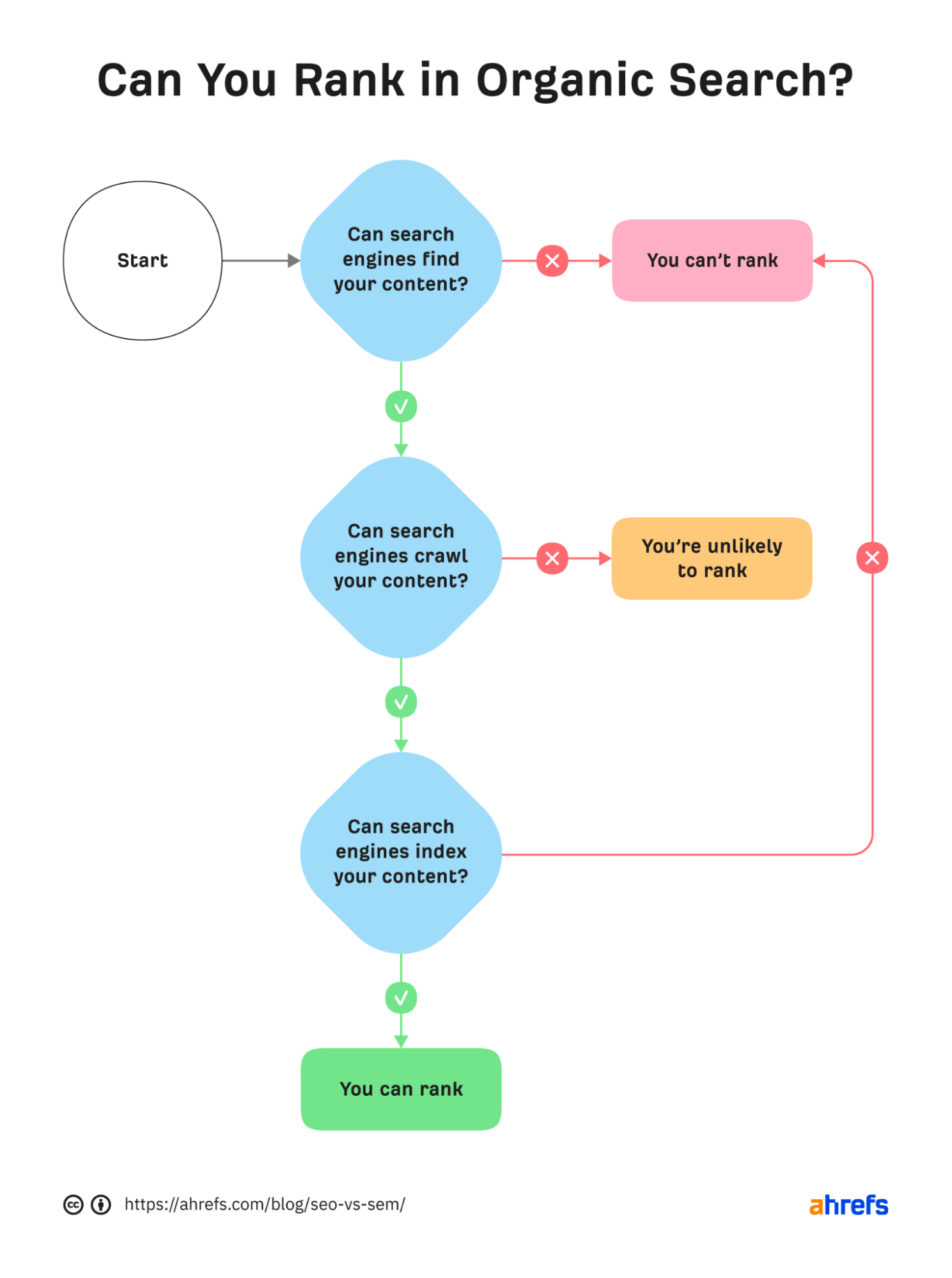
For example, if we block search engines from crawling this article, it’ll be unlikely that we’ll rank since they can’t see and understand what’s on the page.
Recommended reading: The Beginner’s Guide to Technical SEO
Should you invest in SEO? Let’s look at the pros and cons of this marketing type.
Pros
Here are the advantages of SEO.
1. Organic traffic has staying power
As long as you can rank high on Google for your target keywords, you can get consistent search traffic to your website.
For example, this is what organic traffic coming to our blog looks like:
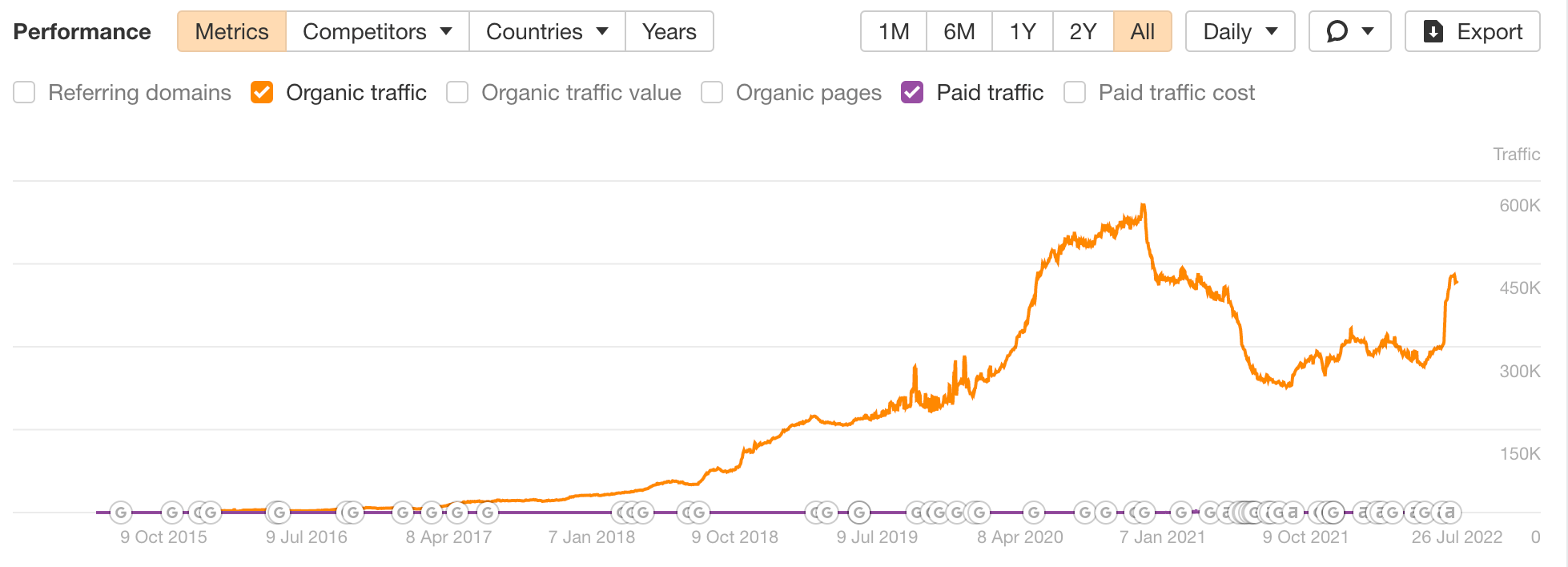
Theoretically, we could stop publishing for a while, and traffic would still continue to flow.
2. SEO can be cheaper in the long term
Our blog ranks for over 95,000 keywords and gets an estimated 419,000 monthly organic visits.
If we were to buy that traffic through PPC, it’d cost us an estimated $548,000 per month (or $6.5 million per year).

Given that our content team is <10 people and we’re not getting paid millions each in salaries, it’s reasonable to say that SEO is cheaper in the long run.
Cons
Here are some downsides to SEO.
1. SEO takes time
In 2017, we conducted a study to find out how long it takes to rank in Google. We discovered that only 22% of pages in the top 10 were published within a year.
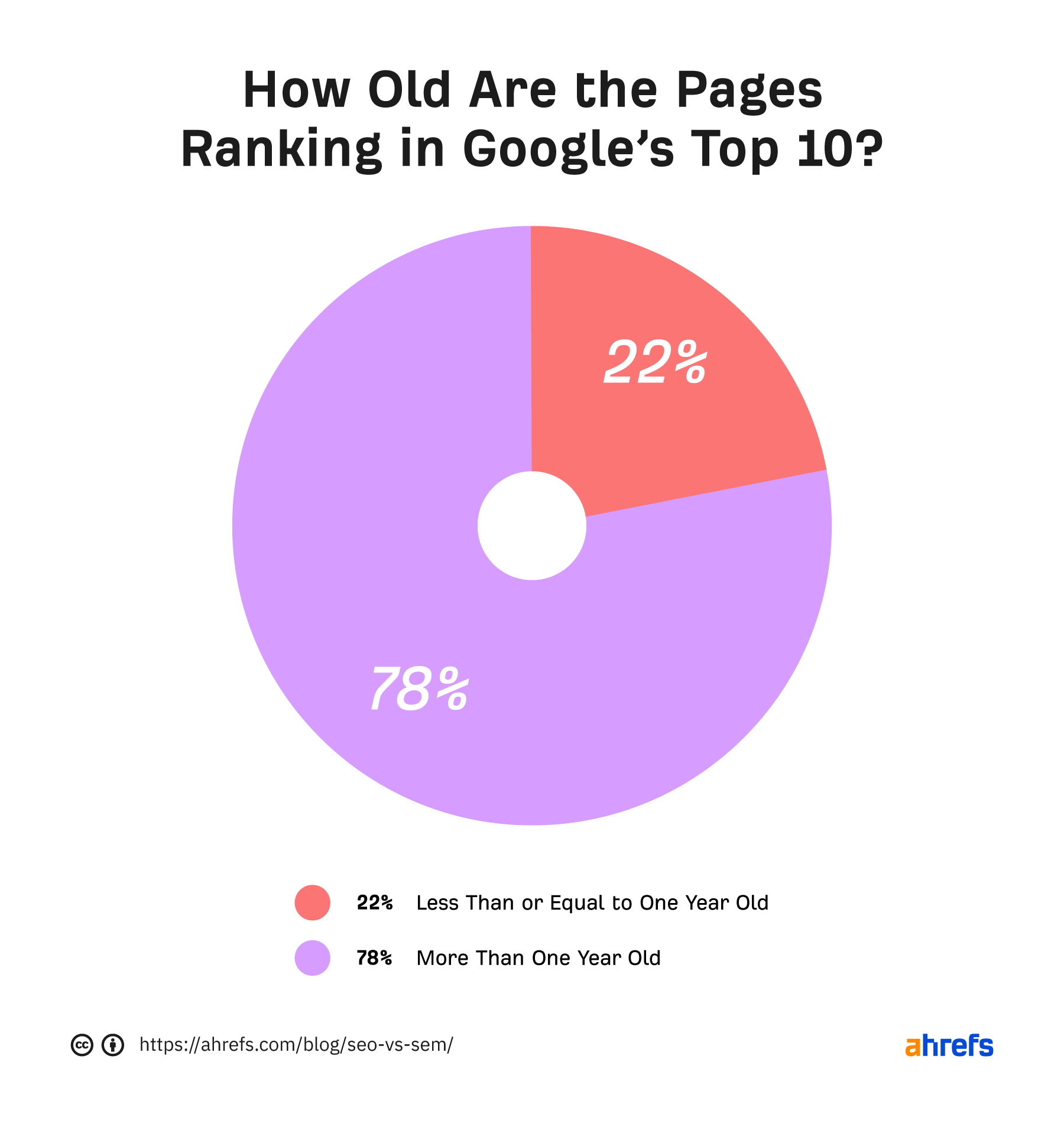
It’s clear—SEO takes time. If your window for making an impact is short, SEO may not be the right strategy.
2. SEO requires unique and authoritative content
Imagine you’re trying to prepare a delicious plate of duck confit. Would you rather learn from Gordon Ramsay or me?
With Gordon, you’ll create the perfect dish. With me, you’ll burn the duck.
People are the same online. They want to learn from experts, or at least people who’ve walked the walk. This is especially true for important and sensitive topics like finance and health.
Google calls these Your Money or Your Life (YMYL) topics, and you’ll need to prove to Google that your website has the required expertise, authority, and trustworthiness (E-A-T).
So to do well in search, you’ll likely need expertise.
Of course, all’s fine and dandy if you’re the domain expert. But if you’re constrained with limited resources, creating such content can be expensive and time-consuming.
3. Some keywords can be really competitive
Look at the SERPs for “basketball shoes”:
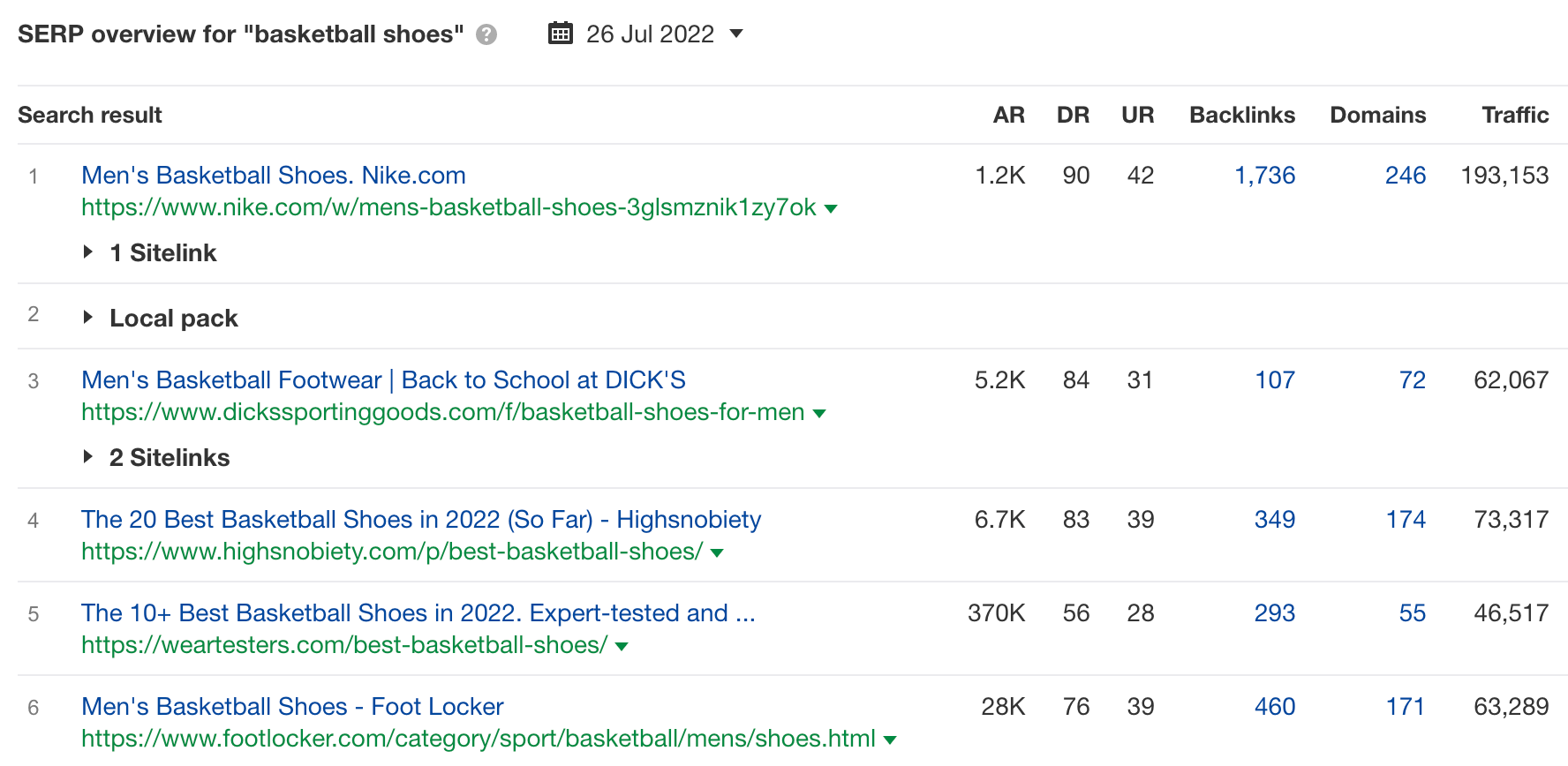
If you’re a new online store that sells basketball shoes, you’ll have to compete with established brands like Nike, Dick’s Sporting Goods, and Foot Locker. It’s daunting.
So while these keywords may be dear to you, understand that it’s going to cost you tons of time, money, and effort to even begin competing. While not impossible, you’ll probably need to start from the bottom—target keywords with low difficulty, slowly build your website’s authority, and more.
PPC marketing is a form of online advertising where advertisers pay a fee each time someone clicks their ad. Search ads are the most common format, but social media ads fall into this category too.
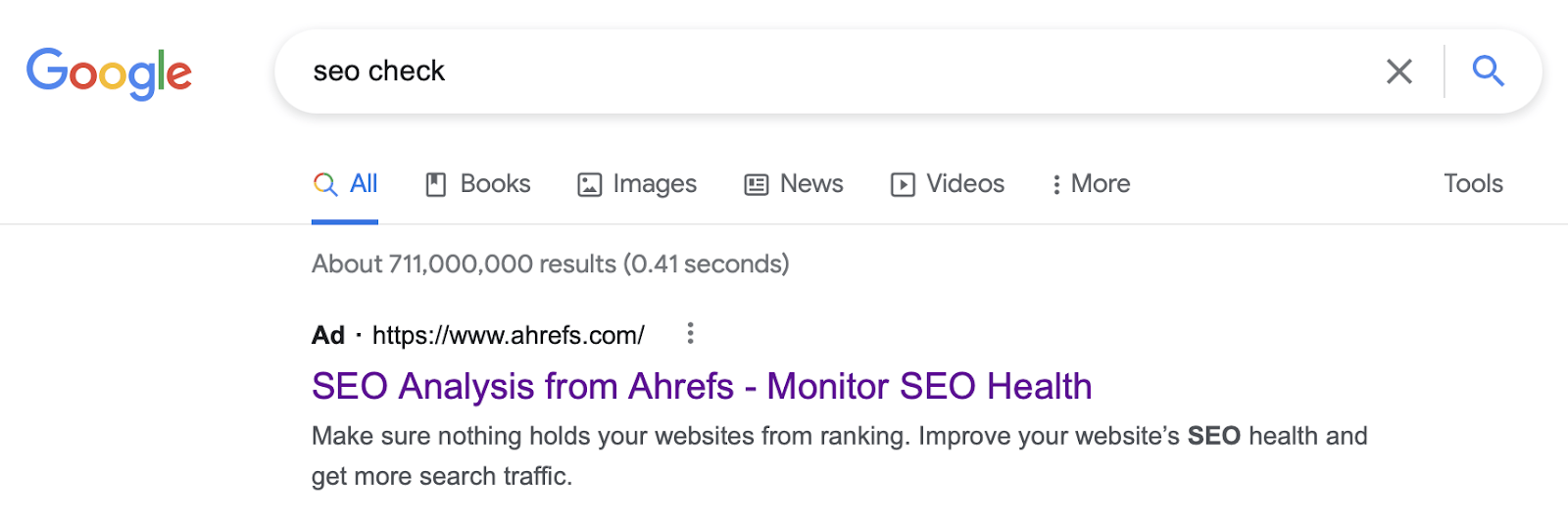
Here’s what PPC advertising for Google Ads typically involves:
- Keyword research – Find what your customers are searching for
- Bid setting – Decide how much you want to pay for a click
- Ad creation – Create a compelling and relevant ad
- Audience targeting – Choose who should see your ad
Recommended reading: PPC Marketing: Beginner’s Guide to Pay-Per-Click Ads
1. Keyword research
Just like how you choose to target a keyword for SEO, you’ll have to choose keywords to target for PPC advertising too. That means doing keyword research.
2. Bid setting
Bid setting is where you decide how much you’re willing to pay Google for an ad click. If competitors outbid you, Google won’t show your ad much—leading to fewer clicks.
3. Ad creation
Ad creation is where you decide what your ad will say and where it will send people. For example, this ad here sends people to Shopify’s homepage:
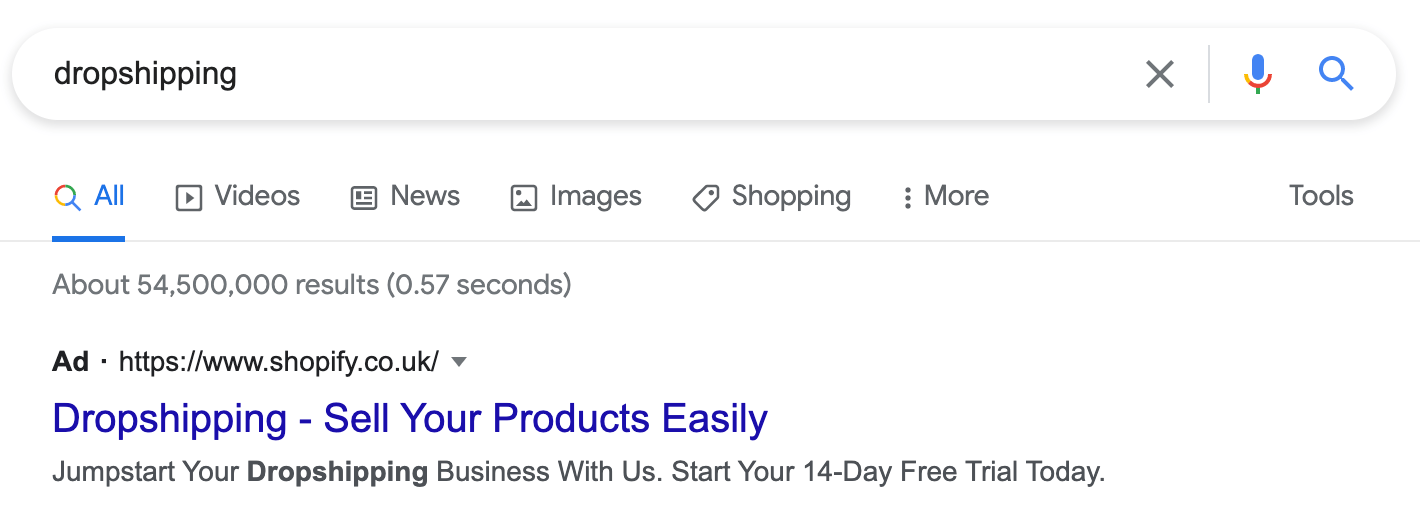
The ads you launch are given a Quality Score by Google. This tells you how relevant and useful your ad is. Generally speaking, higher Quality Scores mean your ads will be seen by more people, and you’ll also pay less for clicks.
Recommended reading: Five Ways to Use Quality Score to Improve Your Performance - Google Ads Help
4. Audience targeting
Audience targeting is where you decide who should see your ad. You can target people based on who they are, what they’re interested in, where they are, and much more.
Recommended reading: About Audience Targeting - Google Ads Help
Should you invest in PPC? Here are the pros and cons.
Pros
What are some advantages of PPC?
1. PPC is fast
PPC is almost instant. You can head over to any ad platform and start a campaign right away.
2. PPC allows for granular targeting
Most PPC platforms will allow you to choose who you want to target (e.g., demographics, geography, interests, etc.).
3. PPC allows for quick experimentation
The nature of PPC is fast feedback. You can set up a campaign, run A/B tests, and monitor the results to see what works and what doesn’t.
Comparatively, SEO takes time and, thus, it can be difficult to attribute success or failure to any single individual change or tactic.
Cons
PPC is not all sunshine and roses. There are some downsides.
1. PPC can get prohibitively expensive
If you’re in a competitive industry like insurance, PPC can get expensive fast.
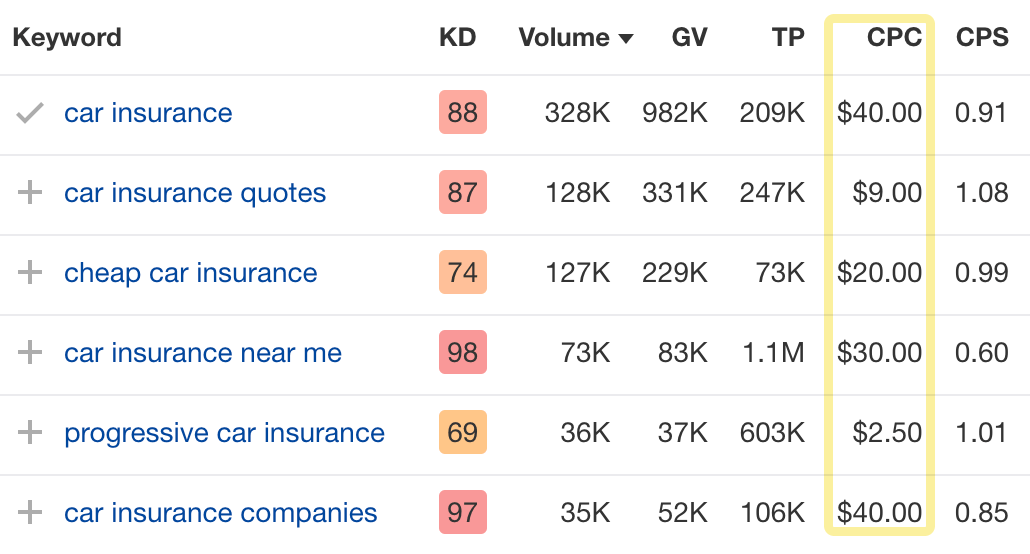
For example, it can cost you $40 per click on average if you’re bidding on the keyword “car insurance.”
2. PPC can lose effectiveness
Andrew Chen writes:
The longer your campaigns run, the less effective they become—people start seeing your ads too often. The messaging becomes stale, and novelty effects are real.
PPC is not set-it-and-forget-it either. Ad blindness is real. You’ll have to constantly refresh your existing ads (headline, copy, images, etc.) to make them work in the long term.
3. You’ll need money to make money
PPC means you’ll need a budget to begin a campaign. You may even lose money in the first few months as you figure out how to optimize your campaigns.
Neither SEO nor PPC is better or worse than the other. Both are legitimate sources of traffic.
So the real answer: it depends. There are some situations where one channel may make more sense.
Let’s take a look at them.
1. You have an innovative product
To get organic traffic, you need to target topics people are already searching for. But if you’re building a disruptive company with an innovative product, then it’s likely that no one is looking for it.
Think back to Uber. Barely anyone was searching for “ride hailing” before the company was formed in 2009.
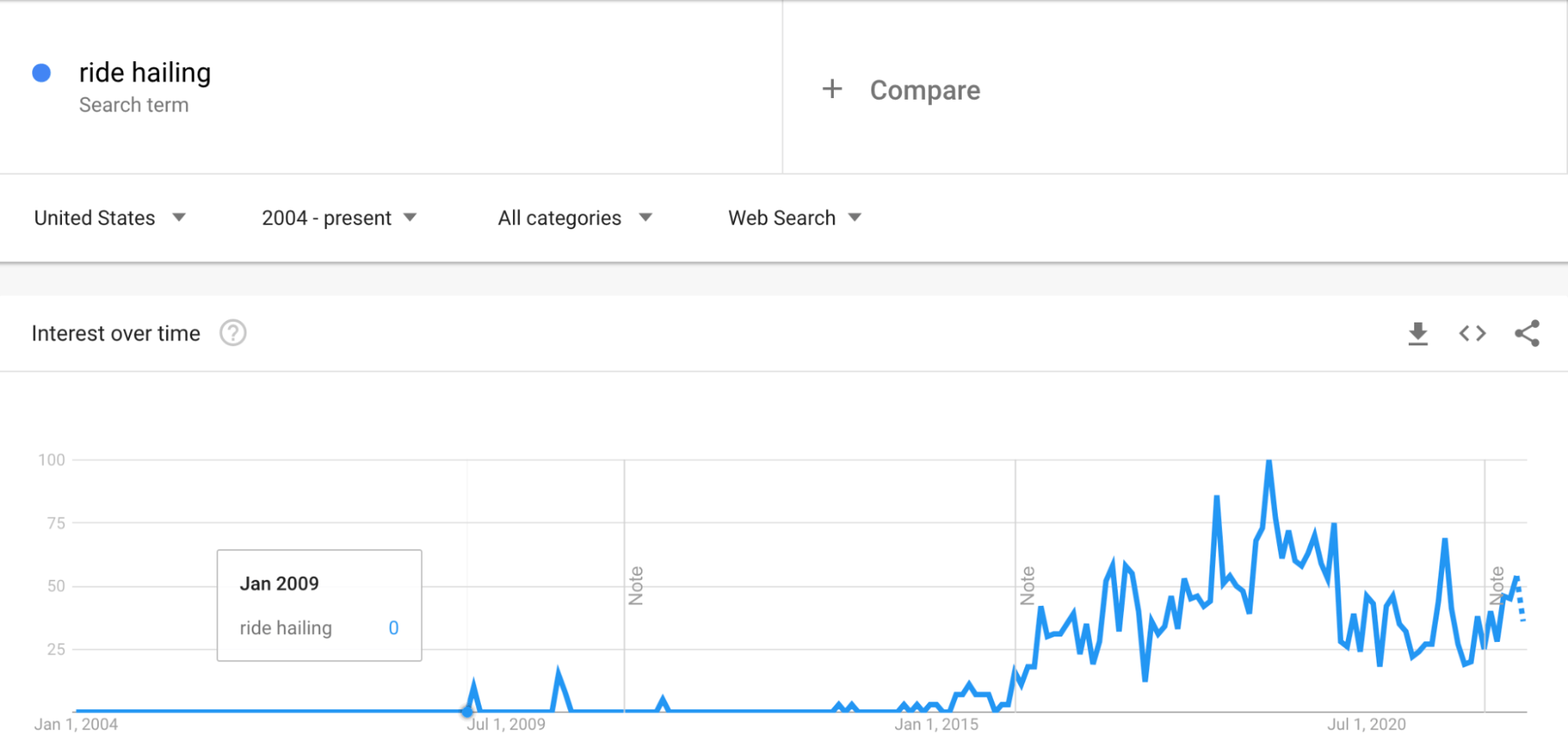
In this scenario, it may be better for you to leverage social media PPC to build awareness.
2. You’re gearing up for a launch/you have a one-time offer
Are you preparing for a product launch or promoting a one-time event? Since SEO takes time, your event may be over before you start ranking.
In this case, you can consider using PPC or other channels like influencer marketing.
3. You’re targeting informational keywords/you’re creating top-of-the-funnel (TOFU) content
Generally speaking, keywords where people are looking to learn, not buy, are poor candidates for PPC.
This is because very few people will immediately convert into customers, so it’s difficult to make a return on your investment.
For example, take the keyword “how to make zoodles.” It gets 2,700 monthly searches and has a CPC of only $0.35:
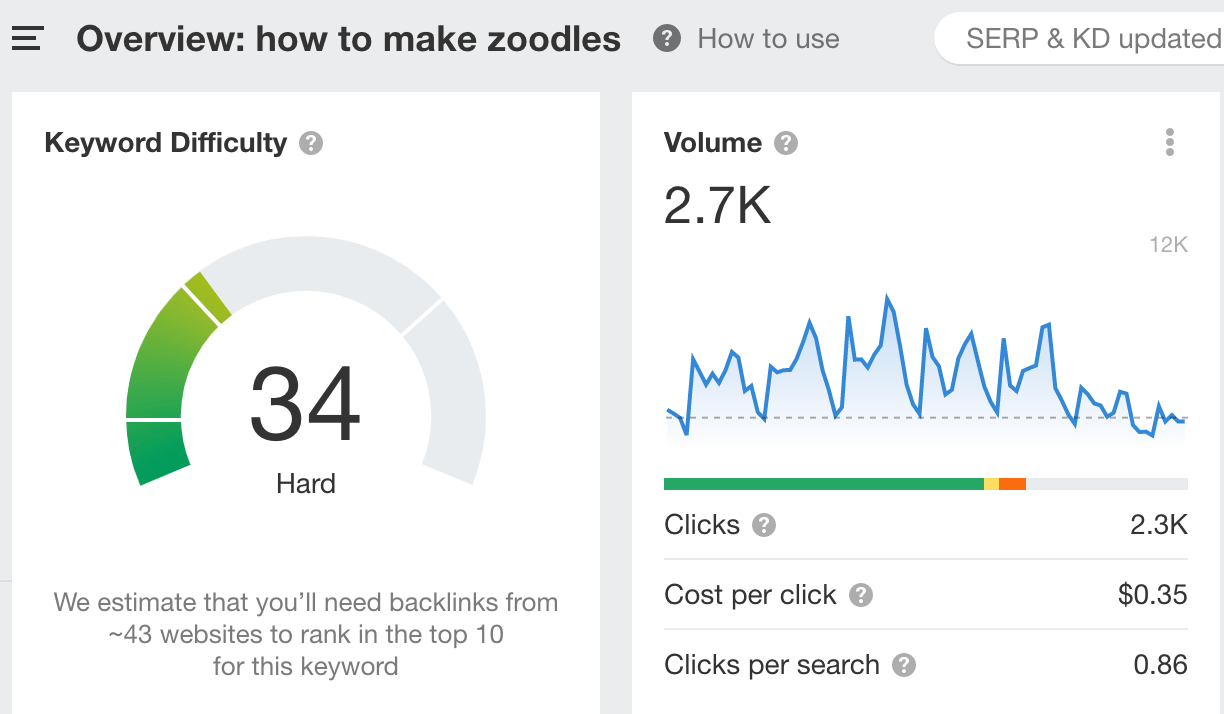
Although you could theoretically drive 100 clicks for only $35, most of these people are simply wondering how to turn their zucchinis into noodles. They aren’t in the market to buy anything (yet).
We know this because the SERPs are all blog posts:
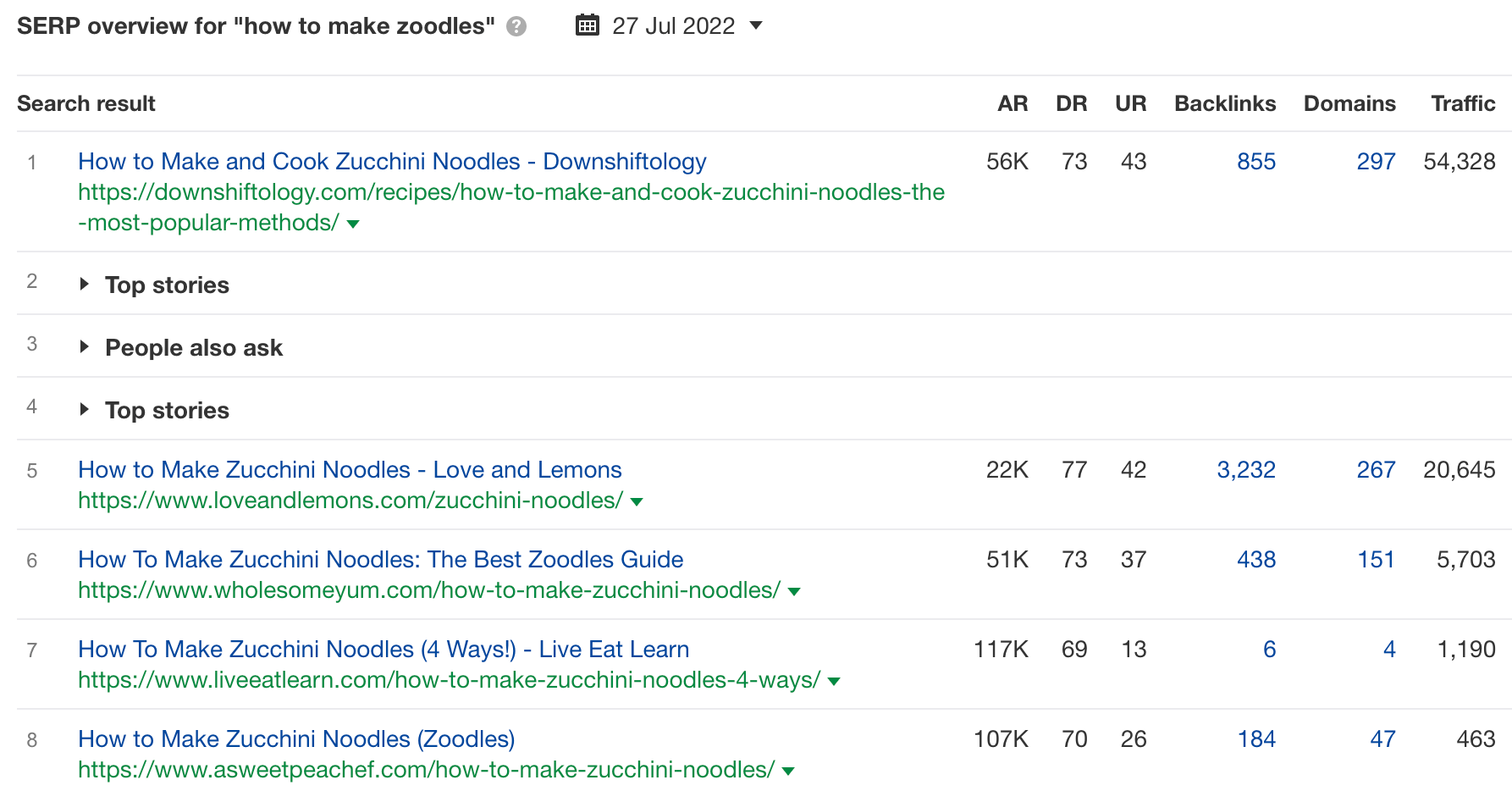
It’ll be a better idea to create content, rather than run ads for such topics.
4. You’re trying to promote commercial content
Generally speaking, people don’t want to link to commercial content like landing or product pages.
So to rank them higher in organic search, you’ll have to consider using strategies like the middleman method. Here’s an animation of how it works:

If you need results quickly, then consider using PPC because you can drive traffic directly to a landing page.
5. You have a low/non-existent budget
I experienced this a few years ago when I was working at a wearable tech startup. There was almost no budget to run ads.
So we turned to SEO and content marketing to build brand awareness and drive traffic to our site.
6. You’re a website flipper
According to EmpireFlippers, this is the formula for how a website is valued:
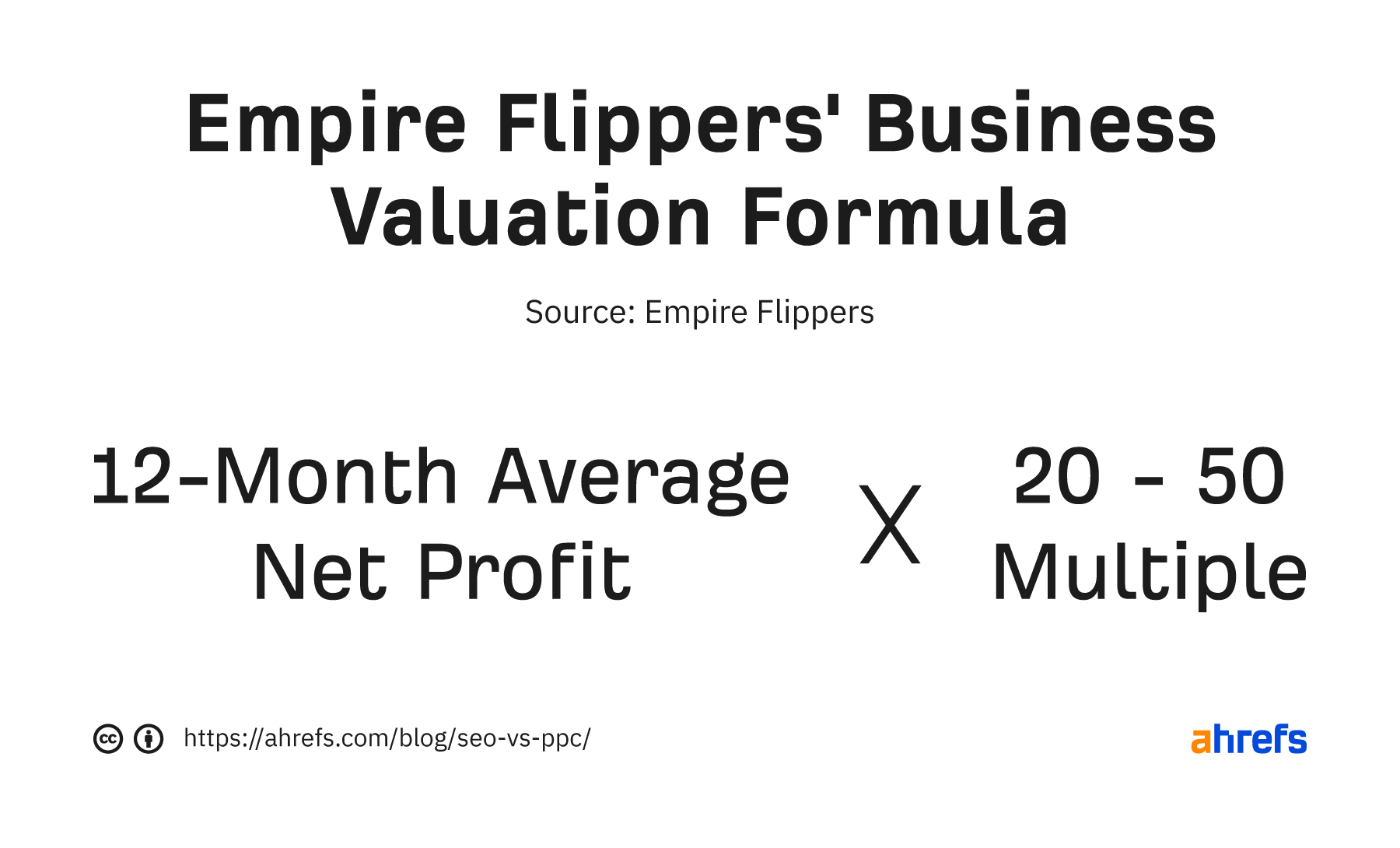
If you wish to sell your site, you should “manipulate” the multiple in your favor.
How? Using SEO.
Website buyers love SEO because organic traffic is harder to acquire but stable over the long term. If you’re selling your site with a solid SEO base, you’re already signaling to buyers that you’ve done the hard work. All they need to do is to maintain or scale it.
Whereas, if the site is reliant on PPC, it takes much more work to manage. Ads need to be refreshed and optimized. Plus, if the ads broke, the business could go bust overnight.
So if you’re into the website flipping business, it may be better for you to focus on SEO.
Recommended reading: How to Value Your Website’s Worth (Better Than a Calculator)
The best businesses use SEO and PPC because they complement each other. After all, if both channels work, why won’t you want to do both?
Here’s how you can use them in tandem:
1. Use PPC ads to promote your content
Each piece of content we produce takes around 10–20 hours to create. It’ll be a waste if no one sees it, so we run ads to distribute it to as many interested people as possible.
Not only do we run ads on Facebook:
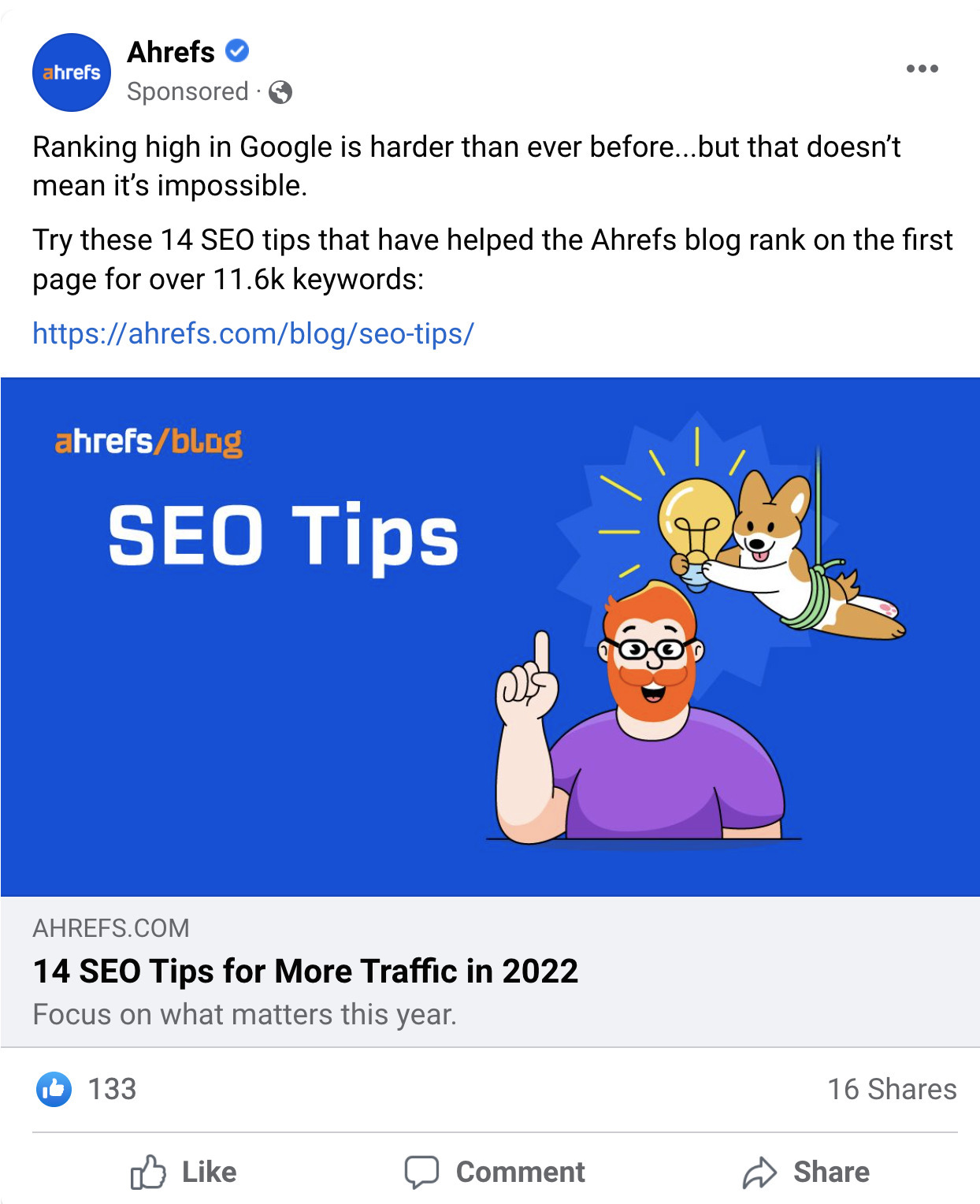
But we also run them on Twitter and Quora:

We also run YouTube ads for our YouTube videos:
2. Use retargeting
Retargeting allows you to target visitors who have left your website. This gives you the opportunity to persuade visitors to return and reconsider a purchase.
Here’s how it works:
- A visitor discovers an article from a coffee website after Googling.
- The page sets a cookie on the visitor’s browser, which allows the coffee website to retarget them, i.e., show ads to these visitors.
- The visitor leaves the page.
- As they surf around the web, they’re shown ads to revisit the website. Depending on where they are in the buyer’s journey, they may be prompted to check out a free offer, try a trial, or buy a product.
3. Pursue keywords your competitors are bidding on
Imagine if you could see the keywords your competitors are bidding on in Google Ads. You could potentially find lucrative keywords and pursue them via PPC or SEO.
To do this, paste a competing domain into Ahrefs’ Site Explorer and head to the Paid keywords report:
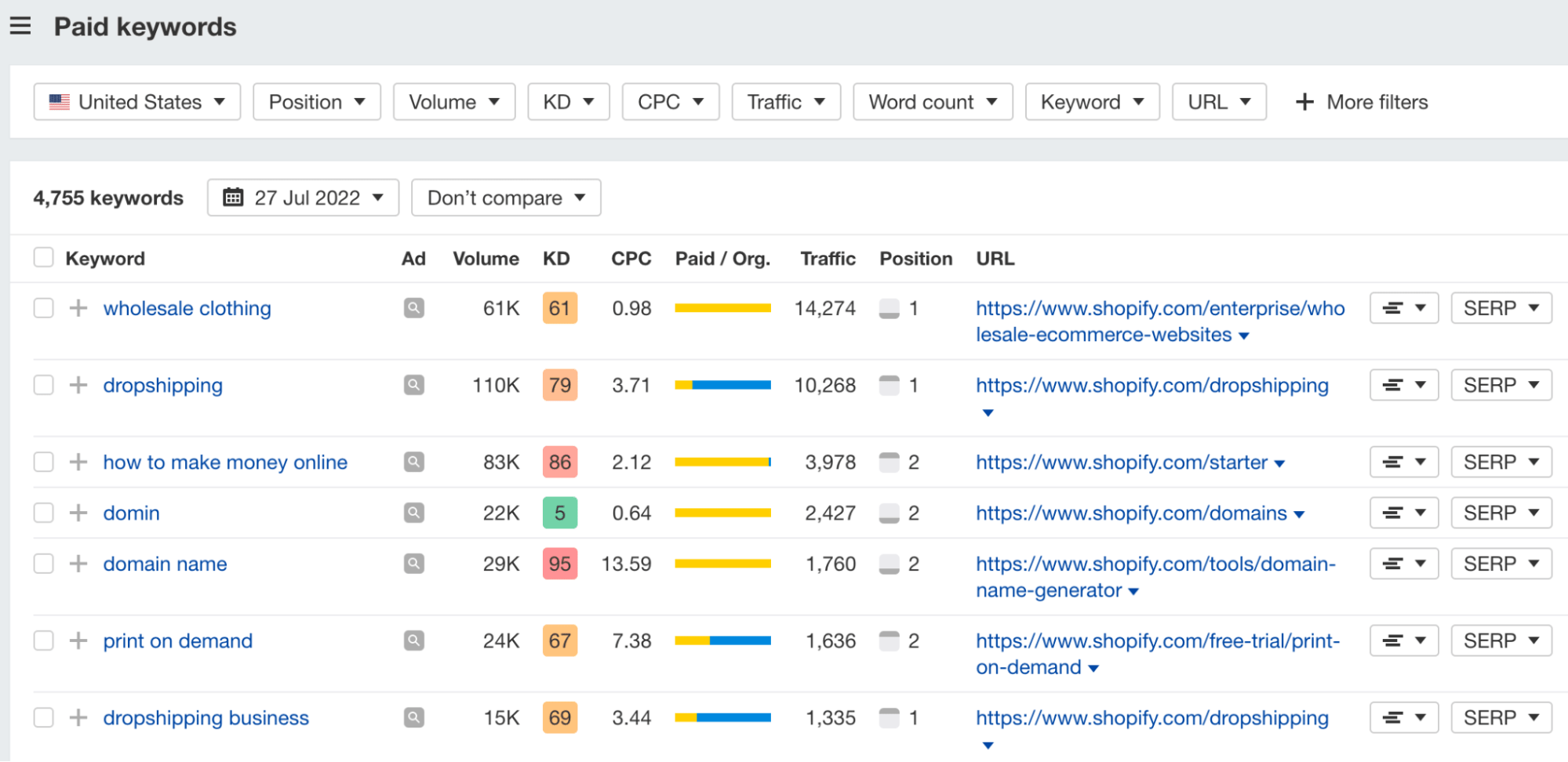
Here, you’ll see the keywords your competitors are bidding on, the landing pages they’re sending traffic to, and the ad copy they’re using.
Consider targeting keywords that may also be lucrative for your business via PPC or SEO.
Final thoughts
Fish and chips. Wine and cheese. Korean fried chicken and beer.
Just like SEO and PPC, these pairings just work. If you want to have the best of both worlds, you should be using both.
Any questions? Hit me up on Twitter.
